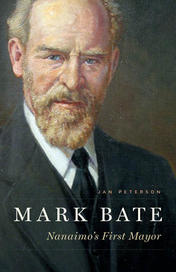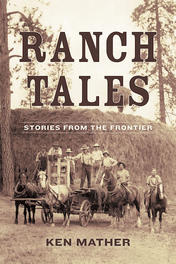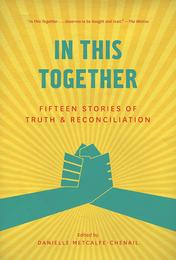History Books From BC
Created by ABPBC on February 2, 2016
The Year Canadians Lost Their Minds and Found Their Country
At first, Canadians showed little interest in marking the centennial. The announcement of a federal program to plan the celebration was met with initial indifference. After all, the event to be celebrated was spectacularly uninteresting—the nation was founded not in blood and revolution, but by discussion and negotiation, bewhiskered men in nineteenth-century frock coats sitting around tables for palaver. But a funny thing happened in the weeks leading to New Year’s Day, 1967. Canadians embr …

The Promise of Paradise
The West has long attracted visionaries and schemers from around the world. And no other region in North America can outstrip British Columbia for the number of utopian or intentional settlement attempts in the past 150 years. Andrew Scott delves into the dramatic stories of these fascinating, but often doomed, communities.
From Doukhobor farmers to Finnish coal miners, Quakers and hippies, many groups have struggled to build idealistic colonies in BC's inspiring landscape. While most discovered …

All the World's a Stage
A celebration of the twenty-eight-year history of Western Canada’s most illustrious Shakespeare festival.
Over the summer of 1990, six thousand Vancouverites flocked into a rented tent at Vanier Park to watch A Midsummer Night’s Dream. It was the inaugural production of what would become one of the city’s most popular and enduring yearly cultural events, the Bard on the Beach Shakespeare Festival. Twenty-five years after Bard’s debut, the company had an operating budget of almost $6 mill …

Mark Bate
An insightful look at the first mayor of Nanaimo, BC, drawing heavily on his prolific and insightful written observations.
Mark Bate, elected Nanaimo’s first mayor in 1875, was a renaissance man. He loved music, writing, literature, the outdoors, community affairs, and of course politics. Bate served as mayor for sixteen terms—most by acclamation. He retired three times, returning to office after being persuaded to serve again.
Historian Jan Peterson skillfully weaves Bate’s own writing— …

Ranch Tales
An entertaining, fast-paced look at early ranching in British Columbia.
Frontier historian Ken Mather is known for his fascinating, in-depth profiles of the men and women who established a distinctive ranching culture in Western Canada over a hundred years ago. Now, in this concise collection of stories—based on Mather’s column in the Vernon Morning Star—readers will meet even more colourful characters, gain insightful tidbits on cowboy culture, and read about little-known cattle drives tha …

Maria Mahoi of the Islands
Since its original publication in 2004, Maria Mahoi of the Islands has become a classic in its field, and an important document on the history of Indigenous Hawaiians known as Kanakas, who had an early presence across the Pacific Northwest and are now part of the broader Hawaiian diaspora across North America. Born in the mid-1850s on Vancouver Island to an Indigenous Hawaiian father and an Indigenous British Columbian mother, Maria (pronounced Ma‐RYE‐ah) moved as a young woman to Salt Sprin …

The Nor'Wester
This gripping novel for young readers begins in 1805, when fifteen-year-old Duncan Scott and his sister Libby lose their parents in a Glasgow cotton mill fire. Their tragedy is compounded when, through one reckless act of grief, the Scott children become fugitives as well as orphans, and must flee Scotland. Across the border in England, Duncan and Libby are betrayed by their travelling companion. In a desperate attempt to save Duncan from the gallows, Libby sacrifices her freedom for her brother …

Infidels and the Damn Churches
British Columbia is at the forefront of a secularizing movement in the English-speaking world. Nearly half its residents claim no religious affiliation, and the province has the highest rate of unbelief or religious indifference in Canada. Infidels and the Damn Churches explores the historical roots of this phenomenon from the 1880s to the First World War.
Lynne Marks reveals that class and racial tensions fuelled irreligion in a world populated by embattled ministers, militant atheists, turn-of …



